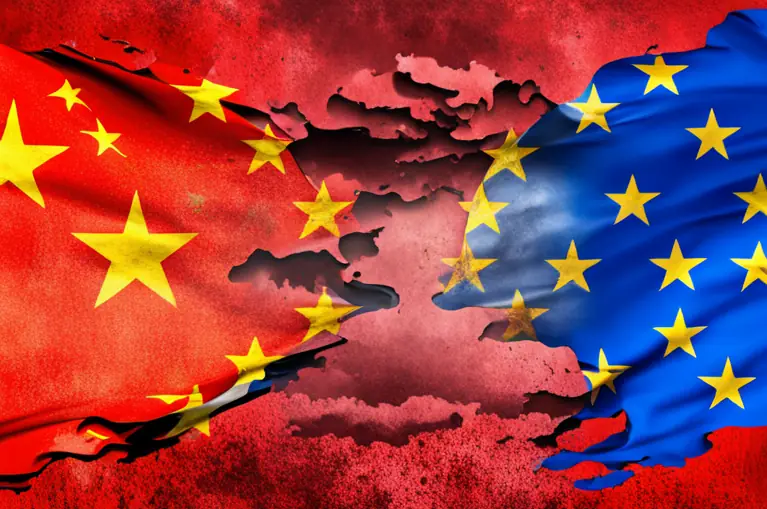Peel back the curtain, and you’ll find that the so-called ‘powerhouses’ of Europe, notably Germany, France, and Italy, aren’t what they seem. The European Union, the colossal entity that has long been dictating terms to these nations, especially within the G7, speaks volumes about the state of affairs. And with Britain retreating to its island status, the spotlight on the EU’s maneuvers intensifies.
Each year, over 60 European directives are thrust upon member states. These directives are swiftly integrated into the national laws of every member, often with no debate, no discourse. One might ask, where is the democratic process in this? Where is the room for discussion or dissent?
Furthermore, there’s an avalanche of over 10,000 “decisions” where so-called “experts” from the European Commission in Brussels offer their “recommendations” to governments. These directives touch upon everything – from healthcare, education, pensions, to the very revenues and expenditures of the nations. What’s alarming is that these aren’t mere suggestions; they are mandates, which the nations must abide by.
This begs the question: Do national elections in EU member states even matter anymore? National leaders, be it Macron, Scholz, or Draghi, are merely playing the part. They’re the puppets, and the puppeteers? A select group of apparatchiks, operating behind a thick veil of secrecy.
Revealed: The Secret Code Europe’s Elites Are Using to Control YOUR Life!

The European Commission stands tall, unchecked and unchallenged. How else would you explain Ursula von der Leyen, who was previously touted as the least effective Defense Minister of modern Germany, rising to dictate foreign, energy, and economic policies for the EU?
However, this isn’t just about Europe. The bigger picture points towards the West’s new game. The Iron Curtain, reminiscent of the chilling Cold War 2.0 vibes, is merely the appetizer. The main course? A fierce showdown in the Asia-Pacific region. And the objective? To stifle China’s BRI and GDI initiatives.
China’s Foreign Affairs Ministry has been vocal about the stark contrast between BRICS and the imperialistic alliance of AUKUS/Quad/IPEF. While BRICS champions genuine multilateralism, focusing on global development cooperation, the US-backed faction seems hell-bent on Cold War-era politics, exploiting developing nations.
It would be folly to assume that the West’s tactics would go unchecked. Take the ludicrous idea of imposing price caps on Russia’s oil and gas exports. Should such a move materialize, Moscow could potentially halt energy supplies to the G7, leading to soaring prices globally.

BRICS: The Torchbearers of Tomorrow
It’s clear that the winds of change are blowing. In a candid interview, Russian Foreign Minister Sergei Lavrov opined that the “West fears honest competition.” He lamented the rise of a culture that suppresses anything that challenges the neoliberal world view.
Lavrov painted a vivid picture of the future landscape. He emphasized that there’s no need for another G8. Instead, Eurasian structures like the EAEU are actively collaborating with the likes of China, aligning their interests. The Association of Southeast Asian Nations (ASEAN) is taking note, with many signing free trade agreements with the EAEU.
The Shanghai Cooperation Organization (SCO) and BRICS are championing a departure from the Western way of doing business. They are advocating for fairer methods, which aren’t solely reliant on the dominant role of the dollar or other currencies. The G20, which fully represents the BRICS, stands in stark contrast to the G7.
Lavrov’s words ring true: “This is a serious balance. The G20 can deteriorate if the West uses it to spread confrontation. The structures I mentioned (SCO, BRICS, ASEAN, EAEU, and CIS) rely on consensus, mutual respect, and a balance of interests, instead of demanding acceptance of a unipolar world reality.“
In conclusion, the world stands at a crossroads. Power dynamics are shifting, and the age-old tactics of silencing dissent and imposing one’s will are being challenged.
The future may be uncertain, but one thing is clear: the tides are turning, and those who refuse to adapt might just be left behind.
Gone viral! – Unlock True Freedom & Happiness: The NESARA Teachings That Will Liberate You!





